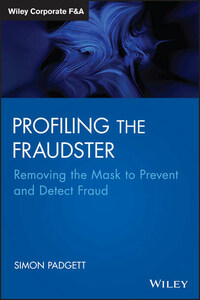TheWiley Corporate F&A series provides information, tools, and insights to corporate professionals responsible for issues affecting the profitability of their company, from accounting and finance to internal controls and performance management.
Founded in 1807, JohnWiley & Sons is the oldest independent publishing company in theUnited States.With offices in North America, Europe, Asia, and Australia,Wiley is globally committed to developing and marketing print and electronic products and services for our customers’ professional and personal knowledge and understanding.
Cover image: © iStock.com/Terry Bridges
Cover design: Wiley
Copyright © 2015 by John Wiley & Sons, Inc. All rights reserved.
Published by John Wiley & Sons, Inc., Hoboken, New Jersey.
Published simultaneously in Canada.
No part of this publication may be reproduced, stored in a retrieval system, or transmitted in any form or by any means, electronic, mechanical, photocopying, recording, scanning, or otherwise, except as permitted under Section 107 or 108 of the 1976 United States Copyright Act, without either the prior written permission of the Publisher, or authorization through payment of the appropriate per-copy fee to the Copyright Clearance Center, Inc., 222 Rosewood Drive, Danvers, MA 01923, (978) 750-8400, fax (978) 646-8600, or on the Web at www.copyright.com. Requests to the Publisher for permission should be addressed to the Permissions Department, John Wiley & Sons, Inc., 111 River Street, Hoboken, NJ 07030, (201) 748-6011, fax (201) 748-6008, or online at http://www.wiley.com/go/permissions.
Limit of Liability/Disclaimer of Warranty: While the publisher and author have used their best efforts in preparing this book, they make no representations or warranties with respect to the accuracy or completeness of the contents of this book and specifically disclaim any implied warranties of merchantability or fitness for a particular purpose. No warranty may be created or extended by sales representatives or written sales materials. The advice and strategies contained herein may not be suitable for your situation. You should consult with a professional where appropriate. Neither the publisher nor author shall be liable for any loss of profit or any other commercial damages, including but not limited to special, incidental, consequential, or other damages.
For general information on our other products and services or for technical support, please contact our Customer Care Department within the United States at (800) 762-2974, outside the United States at (317) 572-3993 or fax (317) 572-4002.
Wiley publishes in a variety of print and electronic formats and by print-on-demand. Some material included with standard print versions of this book may not be included in e-books or in print-on-demand. If this book refers to media such as a CD or DVD that is not included in the version you purchased, you may download this material at http://booksupport.wiley.com. For more information about Wiley products, visit www.wiley.com.
Library of Congress Cataloging-in-Publication Data
Padgett, Simon
Profiling the fraudster: removing the mask to prevent and detect fraud / Simon Padgett.
pages cm. – (Wiley corporate F&A series)
Includes bibliographical references and index.
ISBN 978-1-118-87104-1 (hardback)
1. Corporations-Corrupt practices. 2. White collar crimes. 3. Fraud. 4. Fraud-Prevention. 5. Fraud investigation. I. Title.
HV6768.P33 2014
658.4'73-dc23
2014034566
THE TYPICAL ORGANIZATION LOSES 5 PERCENT of its annual revenue to fraud. Applied to the estimated 2011 gross world product, this figure translates to a potential total fraud loss of more than $3.5 trillion worldwide, according to the Association of Certified Fraud Examiners (ACFE) Report to the Nations, 2012. So, put in context, fraud is material.
Profiling is a part of everyday life for all of us, using previous experiences to determine how we get through the day's activities. Indeed, when we approach winter months we know that we need warmer clothing. Why, because last winter told us so. When we drive through an intersection or the stoplight turns red, we know exactly what to do or how to react to the event because we have done it so many times before. More to the point, we can identify the cold of winter and the challenges we face while driving because we have seen the patterns on numerous occasions before, and our brains have analyzed the information at that time, stored the patterns of data, and drawn on the stored memory to deal with the current event. Then consider your favorite sport and trying to work out who will win. In the same way that we recall previous events, we also recall previous history of individual sports teams and individuals. Soccer players of a certain age may be in their peak, rugby players from a certain continent may win more games, and marathon runners from certain African countries are always likely to run the fastest times. This is everyday profiling of individuals based on previous experiences. If this process works in dealing with the characteristics of day-to-day activities and people we come into contact with, then why is this process of profiling not more prevalent in the fight against fraud? It can be seen that many forensic investigations do not have a formal process for either drawing from or contributing to fraud type and fraudster profiling.








